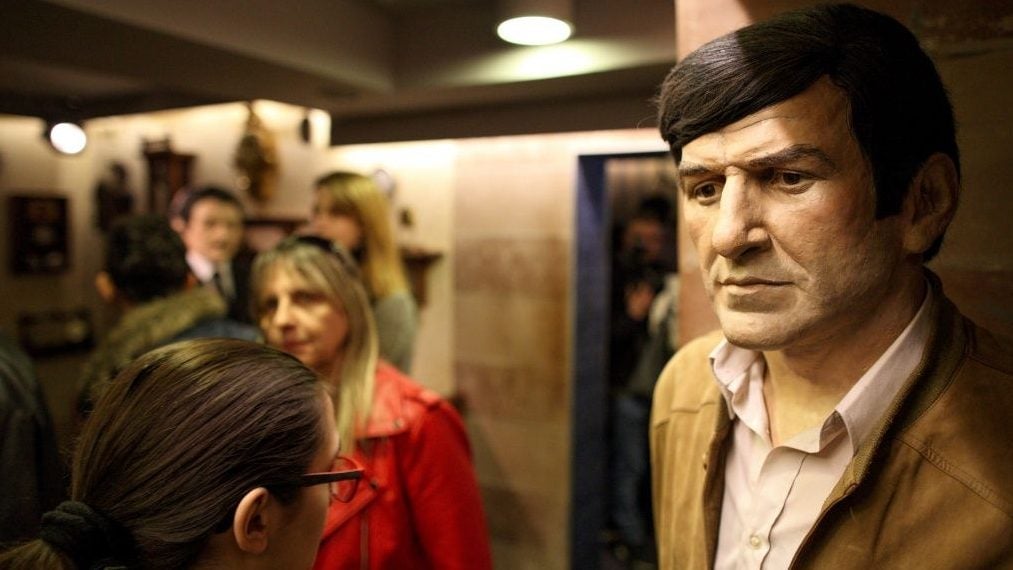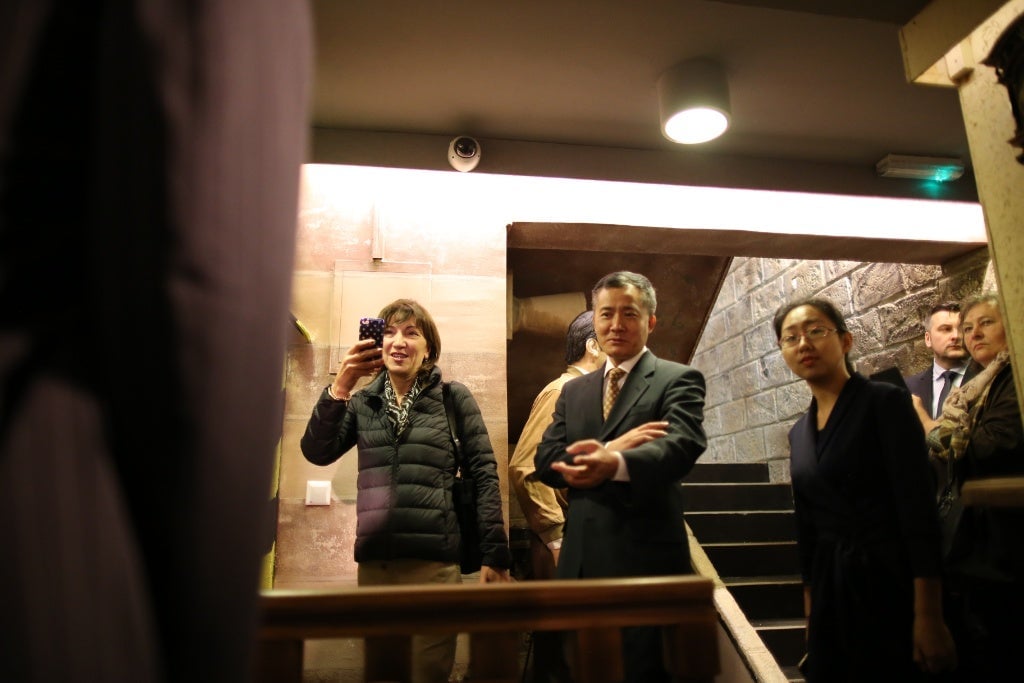China loves this obscure 1972 Yugoslavian movie—and Sarajevo is cashing in
You’ve likely never heard of the 1972 film Walter Defends Sarajevo, much less watched it. Produced in Yugoslavia and set in World War II, the movie follows a Communist guerrilla leader (codenamed Walter) taking on Nazi occupation forces.


You’ve likely never heard of the 1972 film Walter Defends Sarajevo, much less watched it. Produced in Yugoslavia and set in World War II, the movie follows a Communist guerrilla leader (codenamed Walter) taking on Nazi occupation forces.
That might sound obscure, but Walter Defends Sarajevo is one of most-viewed war movies of all time. A new museum dedicated to it just opened in Sarajevo, the capital of Bosnia-Herzegovina, and officials are planning a tourism route, complete with geotagging, that visits places where various scenes of the film were shot.
To understand why, it helps to know the movie’s importance in one particular country: China. Hundreds of millions of Chinese have watched Walter Defends Sarajevo, among the very few foreign films to be screened in the country during the Cultural Revolution. Bosnia-Herzegovina is looking to capitalize on that history to lure in Chinese tourists, whose numbers are already swelling. And negotiations are under way to remake Walter Defends Sarajevo with several Chinese movie studios, said Jasmin Durakovic, head of the Sarajevo Film Center, where the museum is housed.
Though Walter Defends Sarajevo was produced half a century ago and depicts a country that no longer exists, the film traces an important history between China and the Balkans—and looks set to shape Sino-Balkan relations in the years to come.
The Museum Valter Bran Sarajevo, which opened last weekend, features rooms depicting various scenes, wax statues of characters, and multimedia content dedicated to the film. Durakovic said he expects it to be a major attraction for Chinese tourists. “Just after the first working week of the museum, we see that tourists from China are coming in,” he said.
There is also demand for Walter-themed trips, among them a 12-day tour of the Balkans (link in Chinese) offered by a California-based operator that includes a day in Sarajevo visiting the sites where Walter was filmed.
The cult of Valter
In China of the 1970s, Walter Defends Sarajevo was for many viewers a window into the unfamiliar outside world. Its story of a valiant and successful Communist resistance against the tyranny of fascism made it an instant hit, catapulting actor Velimir “Bata” Zivojinovic, who played Walter, to stardom. Walter went on to become the most successful foreign film in China in that decade and the most-watched Yugoslav movie of all time.
One of the first places to screen Walter was the Culture Square in Shanghai, the city’s premiere cinema, where first-run films were shown before they could be seen anywhere else. Later, at cinemas across the country, people lined up in droves to see Walter, for which tickets were often completely sold out. And as recently as last year, a theatrical adaptation of Walter, performed in Mandarin, was staged at the Shanghai Dramatic Arts Center.
The film proved to be so popular that a Chinese beer brand was named after Walter, and cans were emblazoned with the chiseled face of Zivojinovic. Iconic lines from the film—including “Do you see this city? This is Walter!”—became ingrained in the collective memory of an entire Chinese generation.
Other Yugoslav films also did well in China around the same time, though none matched the success of Walter. One reason for their success was that they offered a welcome respite from the cookie-cutter, simplistic revolutionary model operas of the Cultural Revolution period, wrote one Chinese critic in 2016 (in Chinese). In the operas, the critic noted, the good guys all looked the same (handsome, confident, decked in a worker’s uniform), “whereas in Yugoslav films, ‘good guys’ don’t look like ‘good guys’ and ‘bad guys’ have a positive image. These kinds of non-stereotypical artistic expressions were refreshing to the Chinese people.”

Today, said Durakovic, “Bosnia, and especially Sarajevo, shares very similar feelings and values with China about events from its past, especially those concerning the Second World War, but from the time of socialism during the time of Yugoslavia and [its former president Josip Broz Tito]. Because of all this the film, and now the museum… connect the people and culture of Bosnia and China.”
Last year Bosnia-Herzegovina scrapped visa requirements for Chinese tourists, with Mladen Ivanic, a former member of the country’s presidency, predicting that the “cult of Valter” would lead to a sharp increase in their already-rising numbers.
A tool of diplomacy
The movie is also playing a strong role in relations between China and Serbia, which was part of the former Yugoslavia but is now a country east of Bosnia-Herzegovina. The influx of Chinese visitors there—doubling in 2018 from the year before—comes as China is investing heavily in what is one of Europe’s poorest countries. Trade between the two nations tripled between 2005 and 2016, and last year Beijing and Belgrade signed $3 billion worth of economic deals.

For Serbia, these deals represent desperately needed infrastructure investments that it hopes will boost the economy. For China, they represent a significant foothold in southeastern Europe and an opportunity to grow its influence and leverage in Serbia and other Balkan countries that will likely become European Union members (paywall) in the near future. China’s spreading influence in eastern Europe, meanwhile, has the West worried.
When Chinese president Xi Jinping visited Serbia in 2016—the first by a Chinese head of state in some three decades—the two countries signed a bevy of economic deals, strengthening China’s presence in the Balkans as it sought to use the region as a strategic inroad into the rest of the European market.
As ties between China and Serbia grow closer, it appears that Walter Defends Sarajevo will serve as a convenient and time-tested tool of cultural diplomacy for both countries. In fact, it has already played that role. During his visit, Xi also took the time to wax nostalgic about the movie. During a lavish state banquet at which the then-Serbian president Tomislav Nikolić welcomed his Chinese counterpart, the movie’s theme song began to play (link in Chinese).
Xi didn’t skip a beat, saying, “I remember movies like Walter Defends Sarajevo… were once very popular in China. They evoked people’s sentiment of patriotism and accompanied the youth period of our generation.”
As the banquet drew to a close, Xi and Nikolić walked over to the table of Julijana Lula Zivojinovic, the widow of the late actor Zivojinovic, who played Walter. She told Xi, “My husband always loved China, always loved the Chinese.”
Tripti Lahiri contributed to this story.